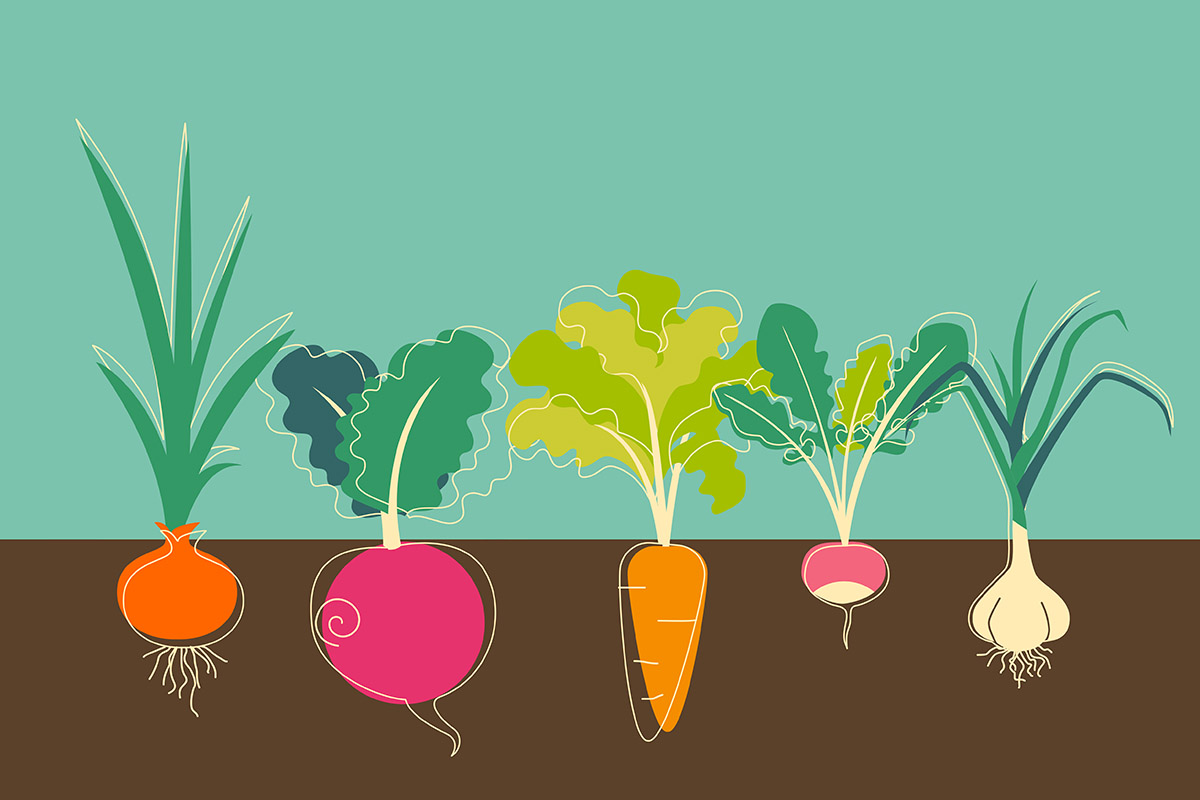Dreaming about sinking your teeth into a garden-fresh tomato? Or does the thought of a juicy, sweet cantaloupe have your mouth watering?
Instead of buying these delicious treats at the farmer’s market this year, why not grow your own? Vegetable gardening in Tennessee is simple to do, provides a great outlet for stress relief and, best of all, you get to enjoy the fruits of your labor (literally!).
Here’s all you need to know about planting a garden in Tennessee this spring.
Types of Garden
You have a few options when it comes to the type of garden. The easiest way to grow vegetables at home is in a container garden. Using cans, barrels, buckets or boxes, you can grow healthy veggies right on your patio without ever lifting a shovel or hoe.
If you’re itching to get your hands dirty, consider building a raised bed garden in your yard. You can make one quite easily using wood or concrete bricks and topsoil. Construct a rectangular box using your materials. Be sure it’s deep enough to hold a good amount of soil. Here’s a good tutorial on how to build a raised bed, courtesy of the Old Farmer’s Almanac.
A conventional row garden requires the most space and elbow grease. You’ll need to mark off a spot for the garden and use a tiller to plow up rows where vegetables will be planted.
According to Old World Garden Farms, row gardens require the most maintenance through the growing season since you’ll have more weeds to pull than with a container garden or raised bed. However, once you get the garden rows laid out, it’s easy to replant seeds or seedlings each spring.
Where to Put Your Garden
Put your garden anywhere you have space, but keep a few points in mind:
- Some vegetables, like tomatoes and peppers, need six to eight hours of sunlight a day. Leafy vegetables like cabbage and kale do best in a partially shaded area, and root vegetables need a moderate amount of sun. Be sure to think about these varying requirements when planning your garden’s location.
- Deer and other wildlife like to nibble on vegetables, so consider putting your garden where you can keep on eye on things. Or, consider surrounding your plants with a fence.
- You may have to water your garden during dry conditions, so make sure you have a water source nearby.
When to Plant Your Garden
Deciding when to plant your garden depends on the types of vegetables you choose. For example, cool-weather veggies like lettuce and broccoli need to be planted by mid-April so they reach maturity before the mid-summer heat sets in.
Warm-weather crops should be started later after the threat of frost and heavy spring rains ends. Here’s a handy guide from the Old Farmer’s Almanac on determining when to plant vegetable gardening in Tennessee.
Vegetable gardening is a fulfilling hobby, and it’s not difficult. Learn which type of garden works for your space and time requirements, buy some seeds or plants and you’ll be on your way to garden-fresh veggies all summer.
Get more information about specific health terms, topics and conditions to better manage your health on bcbst.com. BlueCross BlueShield of Tennessee members can access wellness-related discounts on fitness products, gym memberships, healthy eating and more through Blue365®. BCBST members can also find tools and resources to help improve health and well-being by logging into BlueAccess and going to the Managing Your Health tab.



1 Comment
WellTuned provides inspiration and practical advice for healthy living.
WellTuned does not offer medical advice. Any personal health questions should be addressed to your doctor.